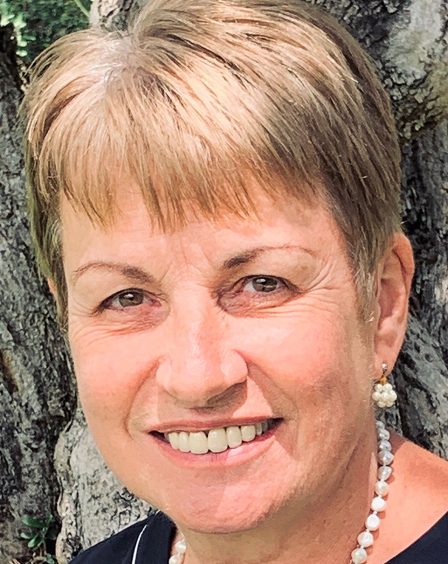Tagged: “Winnie the Pooh”
THE ART AND SCIENCE OF FORGIVENESS
This guest blog was written by Rosemary Kite, Founder and President of Forgive4Peace in Los Angeles, CA.
They say that unforgiveness is like a poison you take hoping that the other person will die! I hope that’s not you.
Let’s start with the easy stuff. The science of forgiveness. Medical experts say that forgiving those who have wronged us helps lower blood pressure, cholesterol, and heart rate. The benefits aren’t just limited to the physical, though. Letting go of old grudges is known to reduce levels of depression, anxiety, and anger. People who forgive tend to have better relationships, be more optimistic, and overall, enjoy better psychological well-being.
So why is it so hard for us to do what is good for us to do? Well, forgiveness is about the hardest thing any one of us ever has to do. But the heart is a muscle and every muscle needs to be exercised. Forgiveness exercises the heart muscle, but not without the help of the head (and the hands for that matter), because forgiveness is above all, a CHOICE. So before moving onto the art of forgiveness, let’s try to define the word.
What exactly is forgiveness anyway? According to Dr. Robert Enright, an Educational Psychologist at the University of Wisconsin-Madison and the Founder of the International Forgiveness Institute, forgiveness can be defined as follows:
“Forgiveness is a willingness to abandon one’s right to resentment, negative judgment and indifferent behavior toward one who unjustly injured us, while fostering the undeserved qualities of compassion, generosity and even love toward him or her.”
See. . . Forgiveness involves the head, the hands, and the heart (the intellect, the will, AND the emotions). Let’s take a minute to look at each of these components:
1st – THE EMOTIONS….where it all starts, in the ANGER. In forgiveness, we strive to abandon our right to resentment, that “re-feeling” of the sting of injustice. Resentment is a feeling, a passion, a movement we feel in a painful way as we strive to abandon the desires for revenge, retaliation, desires of getting even, settling the accounts, the wallowing in self-pity.
2nd – THE INTELLECT. By channeling our emotions through the intellect, we invite our reason to have a say and we work toward abandoning our negative judgments (the critical spirit, the condemnation, the name calling, the depressing self-talk).
3rd – THE BEHAVIOR. Our actions that sometimes speak louder than words. We try to abandon negative behavior in our gestures, attitudes and treatment of the other (the sourpuss, the cold shoulder, the bad-mouthing, the finger, the backbiting). By integrating these three dimensions of ourselves, forgiveness makes us WHOLE. Forgiveness makes us more human.
What forgiveness is NOT is: a four-letter word, excusing, condoning (suggesting that something bad is really something good), forgetting (it doesn’t produce amnesia of the event or the hurt; forgiving and the memory of the event can coexist), or pretending that nothing happened.
So if forgiveness is a choice; it is also a process that is multi-layered and cyclical and that is where the art of forgiveness comes in. It places no conditions such as an apology or remorse or even justice for that matter.
The art of forgiveness looks something like this:
- We stop dancing around denial and acknowledge the injustice in order to uncover the anger.
- We wiggle and wobble around the need to decide to forgive. To make a tough choice. To try to end the resentment. To try to be a loving person even to the one who was unfair to us. We try to learn what Mahatma Gandhi meant when he said: “Forgiveness is an attribute of the strong.”
- Then we dig into the hard work of taking as wide a perspective as possible to re-frame the event, the anger and the pain. Can we consider the humanity in the person; can we see his/her woundedness, stress? Can we see that we both share a common humanity? That this person is not evil incarnate? Can we begin to feel any empathy? A softening of our heart toward understanding?
- Finally, we unearth the peace and freedom of letting go of resentment and bitterness; we release the pent-up anger; lessening the emotional anguish. We discover a freer heart; meaning in our suffering. We come to realize that, in the words of Walt Disney’s Winnie the Pooh: “You’re braver than you believe, stronger than you seem, and smarter than you think.” We learn the great paradox of forgiveness: as you reach out to others in love, you yourself experience emotional healing.
So the secret art and science of forgiveness suggests that the best medicine we can possibly take to improve our physical, psychological, social and spiritual health is forgiveness. Forgiveness is like the pill that offers the deepest healing of the wounds that fester in the human heart.
If you want to be happy for a moment, take revenge. But if you want to be happy forever, forgive.
~ Rosemary Kite

Rosemary Kite
Rosemary Kite and Forgive4Peace have been long-time supporters and financial contributors to the International Forgiveness Institute. Its mission is “to promote forgiveness education at home, at school and at work for the sake of world peace. Forgiveness fills the gap between our world’s unrest and world peace. All education fosters peace. Forgiveness education brings  peace.” In addition to rewarding achievements in forgiveness, Forgive4Peace raises awareness of the importance and value of forgiveness in one’s everyday life. Visit the Forgive4Peace website here.
peace.” In addition to rewarding achievements in forgiveness, Forgive4Peace raises awareness of the importance and value of forgiveness in one’s everyday life. Visit the Forgive4Peace website here.



